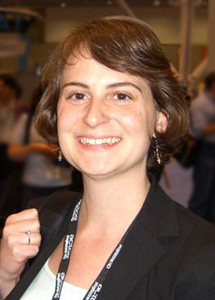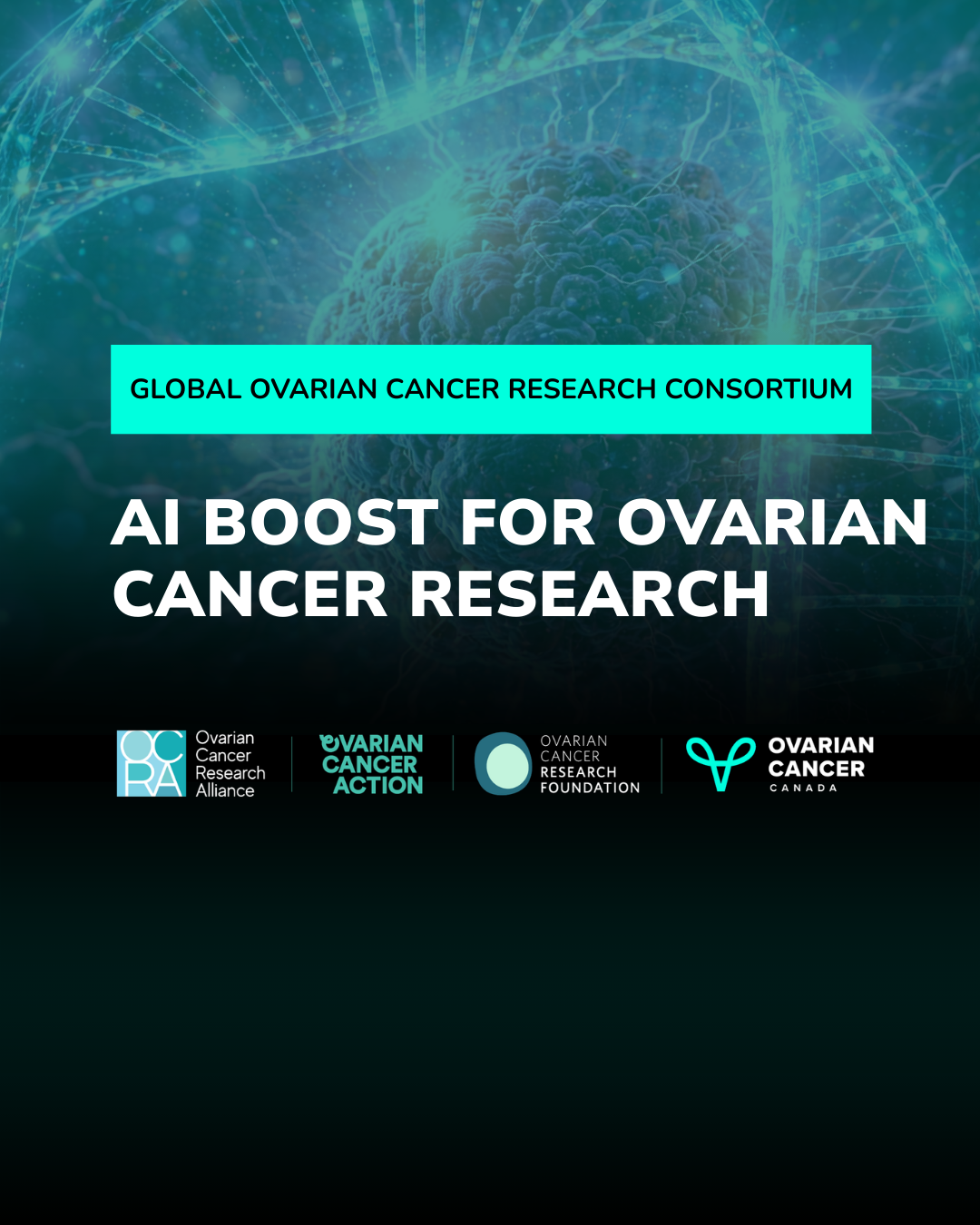
Dr. Joanna Burdette is a 2011 Liz Tilberis Grant Recipient.
In this interview with OCRF’s Sarah DeFeo, Dr. Burdette discusses her research and what it means to receive a grant from OCRF.
Sarah DeFeo: Tell us how you become interested in ovarian cancer research?
Joanna Burdette: My interest in science started in college at Emory University, where students are required to take science courses. I took three tough biology classes, and found that not only was I good at it, I really enjoyed it! That got me started down the path to being a career scientist. I applied to several jobs after I got my PhD, and was offered a position in a breast cancer research lab. Believe it or not, the offer letter was lost in the mail! I never received it! I took a job in a different lab and became interested in the ovary, in ovulation, and then in ovarian cancer. It ended up working out for the best. My grandmother died from ovarian cancer—she died before I was born primarily due to the aggressive nature of this disease. Sadly, I never knew my dad’s mother.
SD: Tell me a little about your research.
JB: Little is known about the earliest events and the tissues in the body that give rise to ovarian cancer. Does the cancer arise from surface cells, or epithelial cells, on the ovary, fallopian tube or both? We don’t know for sure. I believe that developing reliable models of these tissues should help in understanding early pathways of disease. To create models and to determine which cell is responsible, scientists take cells from the different tissues, grow them in culture, and try to transform a normal cell into a cancerous cell. But having a 3-D cell culture model would improve upon traditional two-dimensional systems because it replicates the structures in the body. Regardless of where the cancer originates, ovulation increases the risk for ovarian cancer. I plan to develop novel 3-D organ cultures to test whether ovulation transforms both the ovarian surface epithelium and the fallopian tube epithelium to generate ovarian cancer.
SD: Where does your research fit into the broad picture of research being done on ovarian cancer?
JB: There’s lots of work being done on new therapies to stop the disease once it’s present. The holy grail of this field is to find a really great biomarker for early detection, and lots of labs are working on this, but early detection has proven so difficult. You have to pick your battles. My battle is to better understand the first genetic events that lead to ovarian cancer. I hope this work will result in new technologies for studying precursor cells of ovarian cancers, new cell lines to investigate the role of the fallopian tube in ovarian cancer, and new pathways for intervention and prevention.
SD: You believe that prevention is a major strategy against ovarian cancer?
GM: Absolutely. If we understood what these cells are doing in the earliest stages of the disease, we’d have better targets so that we could try to interrupt that process before it ever really takes off. Understanding these early events would open up new targets for prevention.
SD: How do you think this OCRF award is helpful to your career?
JB: This award will allow me to focus on this important work, and will also give me important exposure. The ovarian cancer research community is small and tightly-knit, but I didn’t do my early work in an ovarian cancer research lab. On one hand, that was good because I learned how to tackle important problems in new ways. On the other hand, I relatively new to the field and don’t know everyone. Beyond just giving me time and money for research, this grant gives me new platform to meet new people, to get my ideas out there, and to establish myself as a researcher in this field.
Dr. Joanna E. Burdette joined the faculty at the University of Illinois at Chicago as an Assistant Professor in the fall of 2007. She earned her B.S. from Emory University in Biology in 1999. She completed a Ph.D. in the Department of Medicinal Chemistry and Pharmacognosy at UIC in 2003 studying botanical dietary supplements for the alleviation of menopausal symptoms. She was a postdoctoral fellow at Northwestern University under the direction of Dr. Teresa K. Woodruff until 2006. Her postdoctoral research centered on ovulation, breast, and ovarian cancers. Dr. Burdette served as a Research Assistant Professor for one year in the Institute for Women’s Health Research at Northwestern. She was the recipient of a Women in Endocrinology abstract award from the Endocrine Society, the Vahlteich scholar award from the College of Pharmacy at UIC, a predoctoral NRSA fellowship, two postdoctoral NRSA fellowships, and a K12 Building Interdisciplinary Research Career’s in Women’s Health faculty training award from the Office for Research in Women’s Health. Since 2007, she has worked to develop three-dimensional models of normal ovarian surface and fallopian tube cells to determine the earliest events in ovarian cancer.


